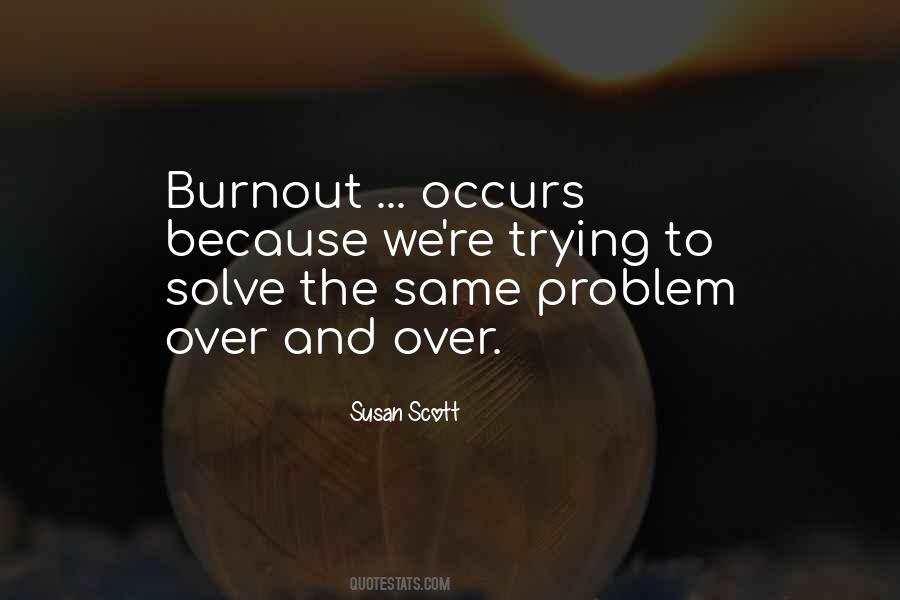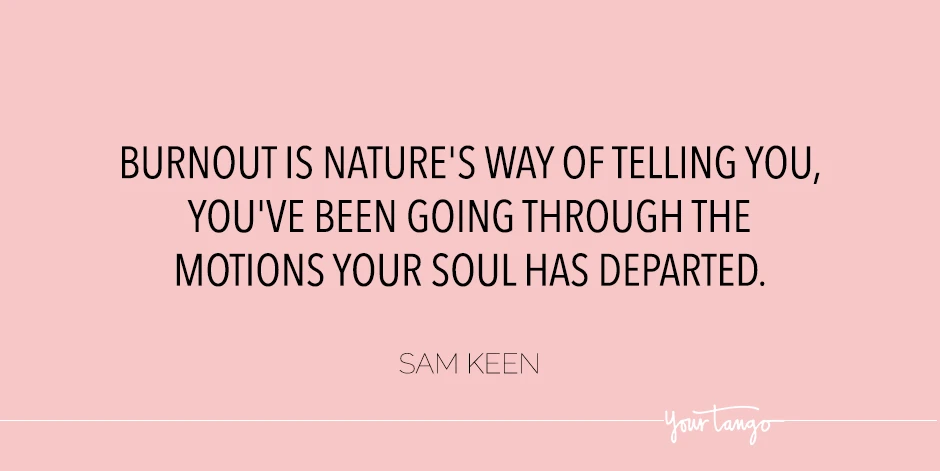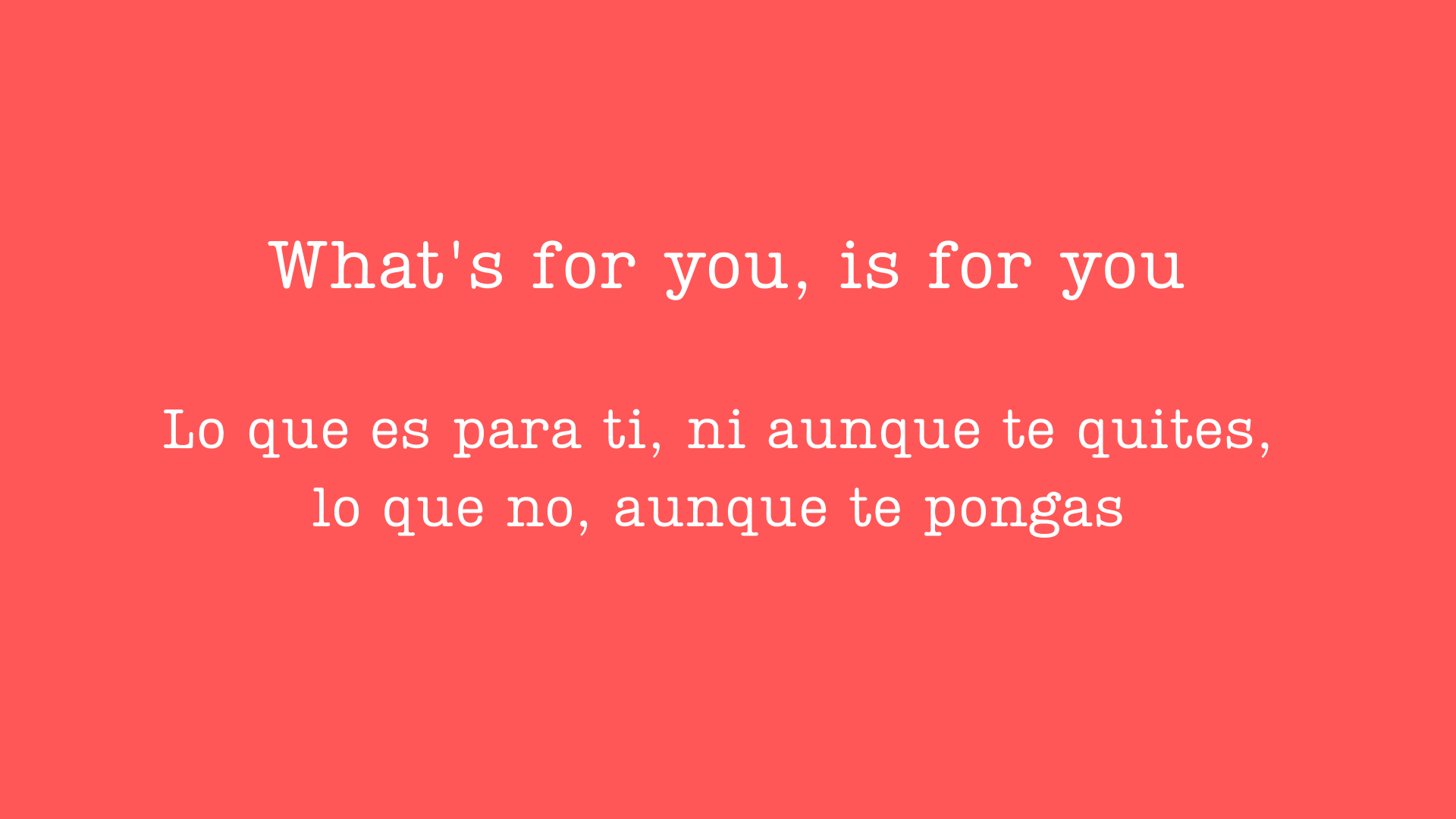Table of Contents
ToggleLast Updated on July 28, 2024 by Lisa
Burnout is a pandemic these days. I wanted to talk about it because although I see so much literature on the subject, I don’t feel like anyone has really been addressing burnout in its entirety.
Today let’s look at the 6 causes of burnout that no-one talks about.

What is burnout?
From an academic point of view, the concept of “burnout” was first introduced in the 1970s and it was defined as a feeling of failure and being worn out (Freudenberger, 1974).
“Another definition of burnout was a progressive loss of idealism, energy and purpose (Edelwich & Brodsky, 1980). This concept was further defined as a state of physical, emotional and mental exhaustion (Pines & Aronson, 1981), or a coping mechanism to working conditions that are stressful, demanding and lack of recognition (Sarros & Densten, 1989). As the stress continues, one may begin to lose interest or motivation in life. Effects of burnout include low productivity, feeling increasingly hopeless, powerless, cynical and resentful, which can eventually threaten one’s job satisfaction, relationship and also health.” (4Life Psychology Centre, 2012)
My personal experience from years ago; burnout wasn’t the feeling of being hit by an oncoming train. It felt more like a slow puncture. It felt like I was leaking energy but I couldn’t quite put my finger on it. Once whilst riding up a sustained hill with friends in a nearby nature reserve, I started dropping back. Eventually, I was the rear end of the twenty-strong group and whilst I could understand why those friends who were stronger than me, left me standing, I couldn’t understand why friends who I’d always been able to keep up with, left me figuratively to choke on their dust. I wasn’t sick that day but I wasn’t well either. My only way to describe it was that I had a puncture but I couldn’t find where and unlike with a car tyre, didn’t have the luxury of fitting a replacement.
Other days, when I did get to the point of illness, most often flu, it just felt like I had more than one puncture or just more than one leak and to top it off, no fuel in the tank. I cannot tell you how long I had burnout or adrenal fatigue for.
It’s the bastard thing about burnout; it’s a hundred other cleverly disguised things before it’s burnout. It’s lyme disease or tick bite fever or Epstein–Barr virus or it’s flu, except by the fourth episode of flu, you realise there’s something else going on. Then, of course, there’s the emotional component where you know all is not well but your mind is so foggy and your emotions all over the place or just numb so even though you want to, you can’t quite make sense of it all.
Having researched the medical definition of burnout for the purposes of this manuscript, the generally accepted definition is that burnout consists of three distinct markers;
- physical and emotional exhaustion such as chronic fatigue, insomnia, forgetfulness, illness, injury, bodily pains, heart palpitations, loss of appetite, depression, anger or anxiety
- cynicism and detachment including loss of enjoyment, pessimism, isolation and detachment or cynicism of one’s work or colleagues
- feelings of ineffectiveness and lack of accomplishment including feelings of apathy, increased irritability and lack of productivity
How to diagnose burnout?
Burnout is difficult to diagnose but in and of itself it isn’t a disease. Burnout leads to disease.
That said, there are ways to see if you’re suffering from the effects of burnout.
See if you identify with any of these by marking an ‘X’ next to each one you identify with;
- I wake up exhausted most days
- I battle to get out of bed
- I can’t think or feel like I can’t think I.e. I’m often forgetful or make silly mistakes
- I have aches and pains in my body
- I’m often ill
- I hardly laugh anymore
- I suffer from headaches on an ongoing basis
- I don’t sleep at night
- I can’t seem to get enough sleep
- Even though I’m exhausted, I’m hyper in the evenings and can’t get to sleep
- I react to events, people and situations
- I feel angry often
- I cry more than three times a week
- I pretend everything is great when it isn’t
- I don’t feel like I can tell anyone what’s wrong
- My friends make me feel worse when I am around them for not being positive
- I feel off-kilter most days
- I know I’m ignoring my intuition
- I generally don’t feel at peace
- I often feel like I’m in the wrong place at the wrong time
- I feel helpless
- The world seems like a hopeless place to me
- I feel like I have no choice
- I don’t feel like I can trust myself
- I often feel like my situation is hopeless
- I often don’t feel like I can find the words I need
- I’ve gained/lost a lot of weight in the past three to six months
- My appetite and/or food choices have changed inexplicably
- I just don’t seem to be able to manage what I used to
- I often forget things
- I feel like I’ve aged
- I feel stuck in my work
- I feel like everything is my fault
- I feel like I need to leave my job
- I self-medicate with alcohol, sugar, sex, drugs, work etc.
- I’ve lost my sex drive
- I find myself fantasising about being somewhere else e.g. leaving my job/relationship
- I struggle to concentrate
- I need sugar/caffeine / sex/alcohol to make it through my day
- I often ‘blackout’ in conversations or forget what people are saying
- I feel like I want to go live somewhere else
- I’m avoiding things or people
- I feel ashamed of how I’m coping
- I feel ashamed of myself in general
- Changes at work feel like a threat
- I’ve had alot of small accidents e.g. dropping plates etc.
- I feel afraid alot or most of the time
- It takes me a lot of time to get anything done, even the simplest tasks
- I have no tolerance for polite conversation
- Sometimes I burst into tears for no reason
- I’ve begun not to care if my partner leaves me
- I often just feel like I want to crawl in bed and stay there
- I feel constantly challenged in almost every aspect of my life
- I feel constantly overwhelmed
- I can’t be or don’t want to be around people
- I feel constantly worried
- Little things trigger me either in anger or sadness
- I’ve become alot more cynical
- I’m unproductive
- Nothing makes me feel better
- Activities that I would usually do quickly, take me a long time
- I’ve lost alot of hair – more than usual
- I can’t seem to do even half of what I’d usually do
- I often suffer from injury
- I feel volatile
- I can’t seem to make a decision
- I often feel like I’m making mistakes
- I feel like I’m in survival mode
- I feel disconnected from the people I love
- I feel like no one understands me or will understand me
If you marked more than forty, you may want to do some more investigation or enlist the help of a doctor or health professional. If you’ve marked more than fifty then you may definitely want to enlist help.
The 6 BIGGEST causes of burnout
Discovering the cause of burnout may just be the single biggest definitive factor in solving your burnout crisis. If you can understand the reason that your body is trying to get your attention, you may experience that your burnout lifts in a much shorter time than anticipated.
The physical cause of burnout is as follows;
The adrenal glands, small organs above the kidneys, respond to stress by releasing hormones like cortisol in order to regulate your blood pressure and how your heart works. If you experience stress on an ongoing basis, the glands cannot keep up with the body’s demands for adrenaline and cortisol; the hormones you need to feel good, so adrenal fatigue sets in.
But the reasons may be deeper than meets the eye;
1. Lifestyle choices
By lifestyle choices, I’m talking about the nature, time and quantity of your eating, sleeping, relaxation, exercise and food habits.
Essentially this has to do with the difference between the perception of one’s stressors and incidentally with the ability of the body to keep performing.
You may not realise you’re constantly being boosted by the hormones adrenaline and cortisol because of two reasons; you’ve become so used to living in fight, flight or freeze or you’ve also found a way (we humans can be sneaky like this) to boost these hormones through other avenues such as sex, partying, alcohol, sugar and yes even adrenaline or endurance sport in an addictive ongoing basis.
2. Helplessness and meaninglessness
In all my research I found that helplessness, meaninglessness and hopelessness were listed as the result of burnout but I don’t think that we’re dealing with resultant factors here. I think we’re dealing with causal factors. The distinction here is crucial.
We often don’t know or realise how we feel because our lives are so externally stimulated. Unless we have a practice of tuning into how we feel we just run on autopilot. Mostly our feelings are like clouds and come and go but in the case of hopelessness; it permeates into the psyche and into our daily lives. Hopelessness, helplessness and meaninglessness are essentially one way tickets to burnout where we collapse in a heap. You may think I’m being ridiculous or overly dramatic but tell me, or at least yourself, how many of the following habits are indicative of your behaviour or context;
- Writing to do lists that never get finished either because more tasks are added each day or because you never start the tasks in the first place
- Setting up an exercises or eating schedule that you never stick to
- Setting goals that you don’t take steps to working towards or that you’ve tried to reach but never seem to be able to achieve
- Having a busy schedule that overwhelms you
- Meaning to call certain people but then you just don’t
- Feeling constantly unprepared for work commitments
- Experiencing an ongoing legal battle that drains your resources
- Experiencing conflict situations where you feel bullied
- Experiencing work conflict or challenges where you feel overwhelmed
- Experiencing severe relationship challenges or conflict that leave you feeling incapacitated, frustrated or angry
- Experiencing the financial challenges that don’t seem to disappear and leave you feeling like the situation is impossible.
They key here is not the situations themselves but rather how they leave you feeling. If you keep repeating these behaviours that leave you feeling hopeless, it’s going to have an effect on your body eventually.
3. Contrasting values
Essentially a contrast in values is an extension of helplessness and meaninglessness but to a cataclysmic degree.
The idea comes from Christina Maslach, the author of “The Truth About Burnout”. In her book, she discusses the causes of burnout including the discrepancy of values between the individual and the organisation. Whilst, in her book, she speaks about burnout purely from an organisational and professional perspective, a conflict of values as a cause for burnout, can be easily extrapolated to other areas of an individual’s life.
Nothing upsets human homeostasis be it in relationships, at work or even within ‘the self’ like going against one’s core values. I won’t harp on about the effects on the physical body safe to say that if you are dishonoring your core values you are are likely to experience psychological discomfort and violating your own core values will lead to burnout at your job, in your personal life and on living. The body, after all doesn’t differentiate between psychological stress, emotional stress, mental stress and physical stress.
4. Lack of simple rest
I’ve called it simple rest but to some of us simple rest is one of the most complicated subjects.
Look me in the eye and tell me you don’t feel guilty taking downtime or setting boundaries?! I’ll look back and you and bet my bicycle (which I adore) that you’ve never experienced burnout. Learning to be still is something that should be taught to us at school in the form of reading or some other activity that restores our soul and doesn’t require constant engagement or achievement.
Some of us also seem to have embedded within us the idea that busyness equates to some sense of value so when we’re not busy, it creates a sense of anxiety that relates to not feeling valuable. Of course, we’d most likely choose burnout over feeling worthless any day of the week so we don’t allow ourselves to rest.
5. Unresolved trauma
Feelings of anxiety and depression are often associated with unprocessed trauma. A traumatic event impacts the limbic system, which impacts the body’s ability to metabolize stress. Without resolving trauma, repeated trauma occurs as a result of the body continuously experiencing the fight, flight or freeze response as we anticipate when the bottom will fall out of our lives again.
In an interview with Oprah Winfrey psychiatrist and neuroscientist Bruce Perry stated “If you have developmental trauma, the truth is you’re going to be at risk for almost any kind of physical health, mental health, social health problem that you can think of,” said Perry.
6. Ignoring one’s gut
“Burnout could be due to you living with an unhealthy gut. If your gut is struggling, you can experience tiredness, lethargy, lack of energy, digestive issues, binge-eating and many other symptoms that can make everyday tasks extremely challenging.
Most of the serotonin in the body is made in the gut. If your gut isn’t functioning well, it cannot produce enough serotonin. This can lead to low mood, anxiety, trouble sleeping, altered appetite and stress.” – The Gut Company
How to heal burnout?
As with most things; awareness is not only the first step but typically the solution too. What most of us who suffer from burnout may not realise is there’s a cycle of exhaustion at play and whilst it’s difficult to admit, certain behaviour merely prolongs the cycle.
Burnout, in its various forms runs in a cycle. It’s the sneaky thing about burnout; we start by feeling tired, then symptoms progress until such time as an intervention is needed, we then take some kind of action, medical, rest or otherwise which leaves us feeling marginally better and able to function. At this time although we don’t feel 100% we go back to our usual routine possibly thinking that it was just the intervention that was needed but before too long, we’re back at the doctor or have picked up another injury.
If you’re REALLY going to heal burnout at it’s core, you’ll need to be prepared to make some shifts.
As I have a whole other blog to write on the subject, I’ll save the details but to heal burnout, I can suggest;
- Working with a therapist
- Working with a holistic medical practitioner
- Taking some time to re-evaluate your priorities
- Following a whole-food diet
- Journalling and starting to become aware of your repetitive thoughts
- Breathwork, yoga and alternative therapies that force you to slow down.
More about this in the next blog.
For now, just know that everything is going to be okay.
![]()




